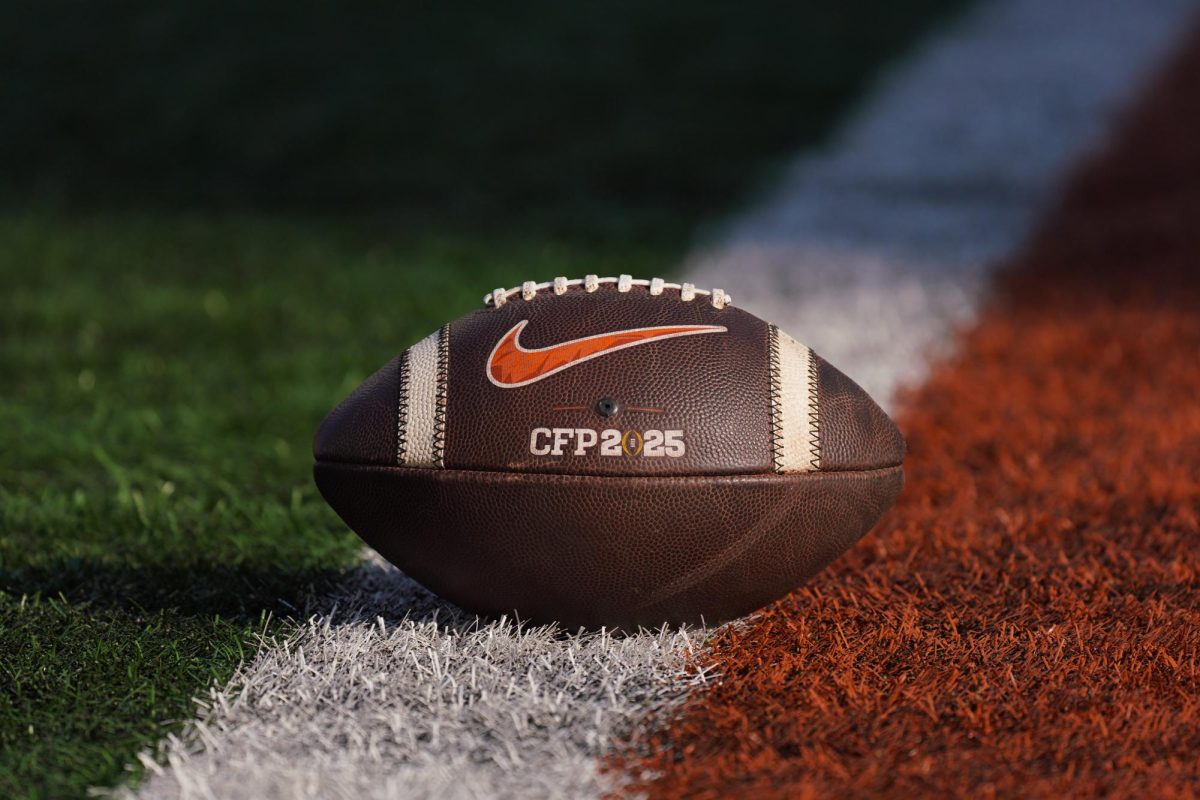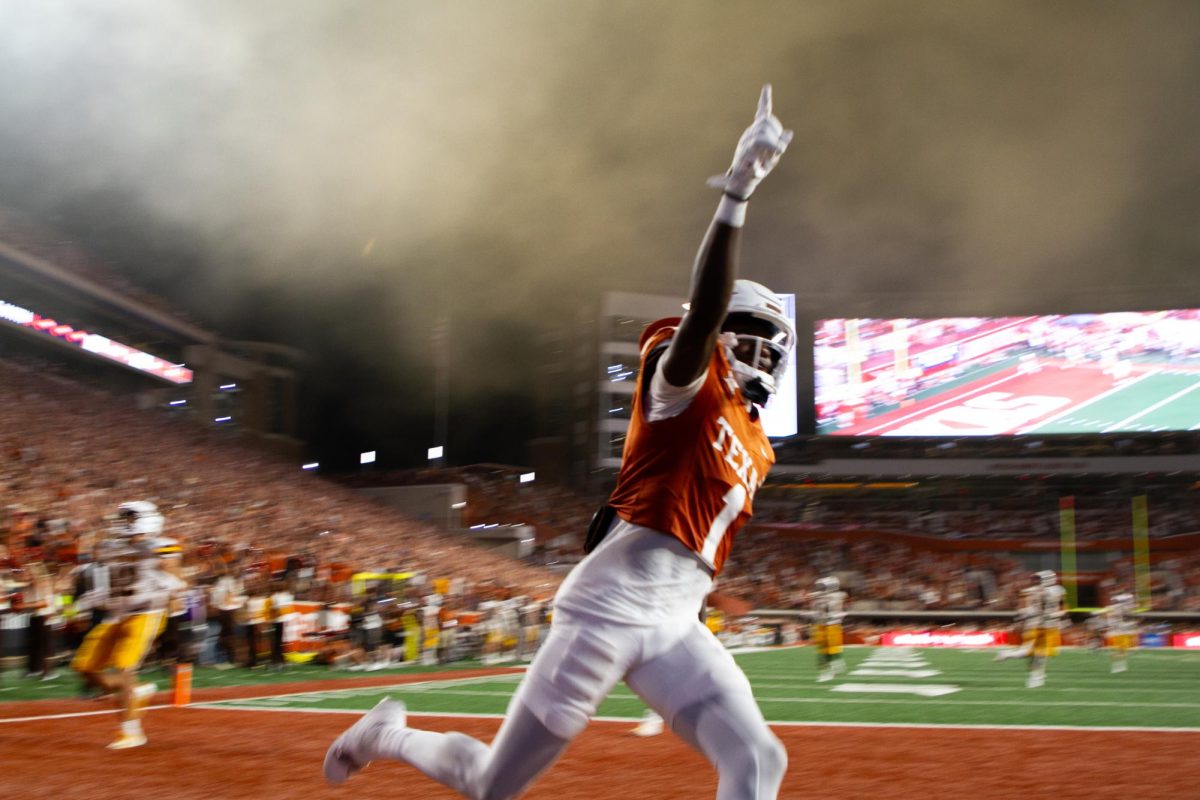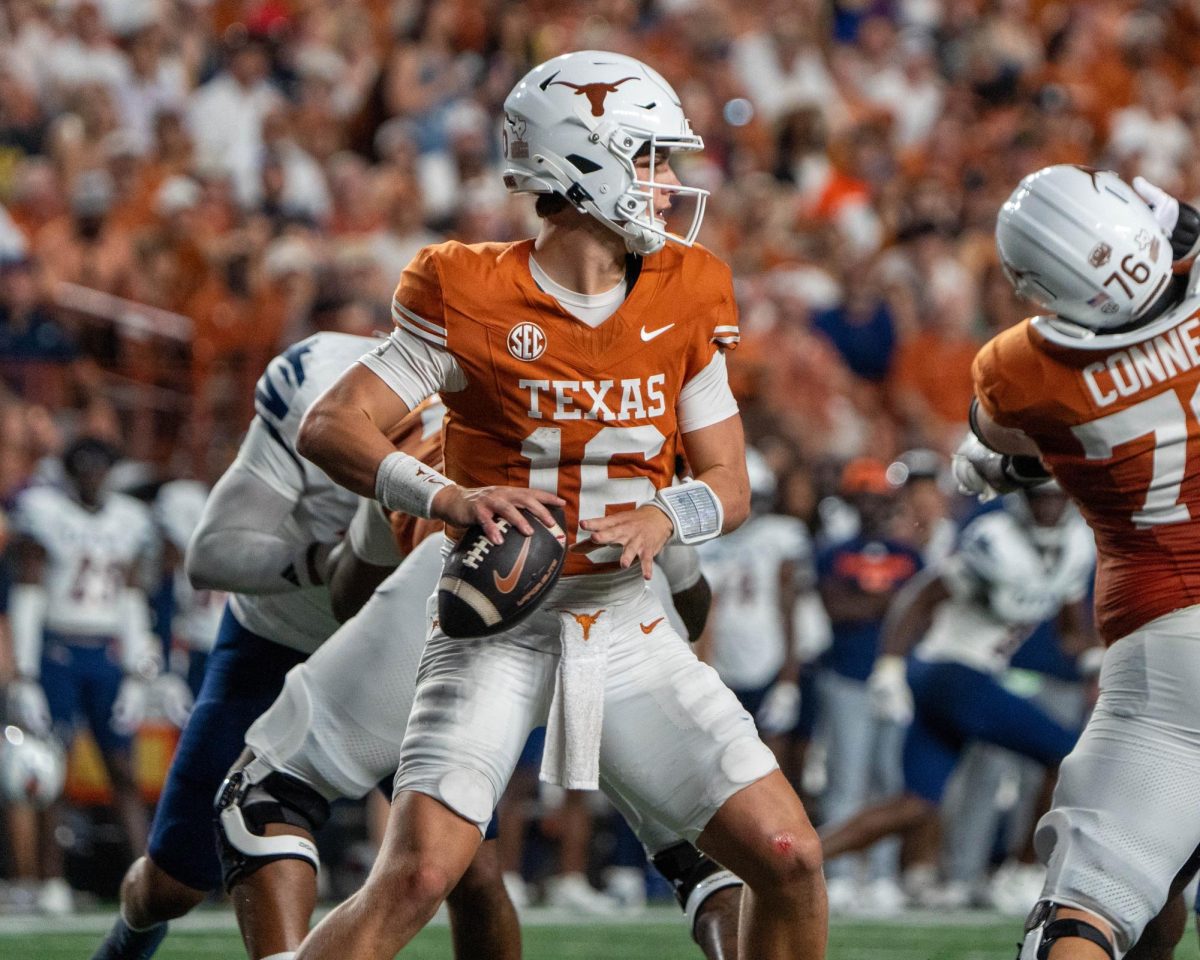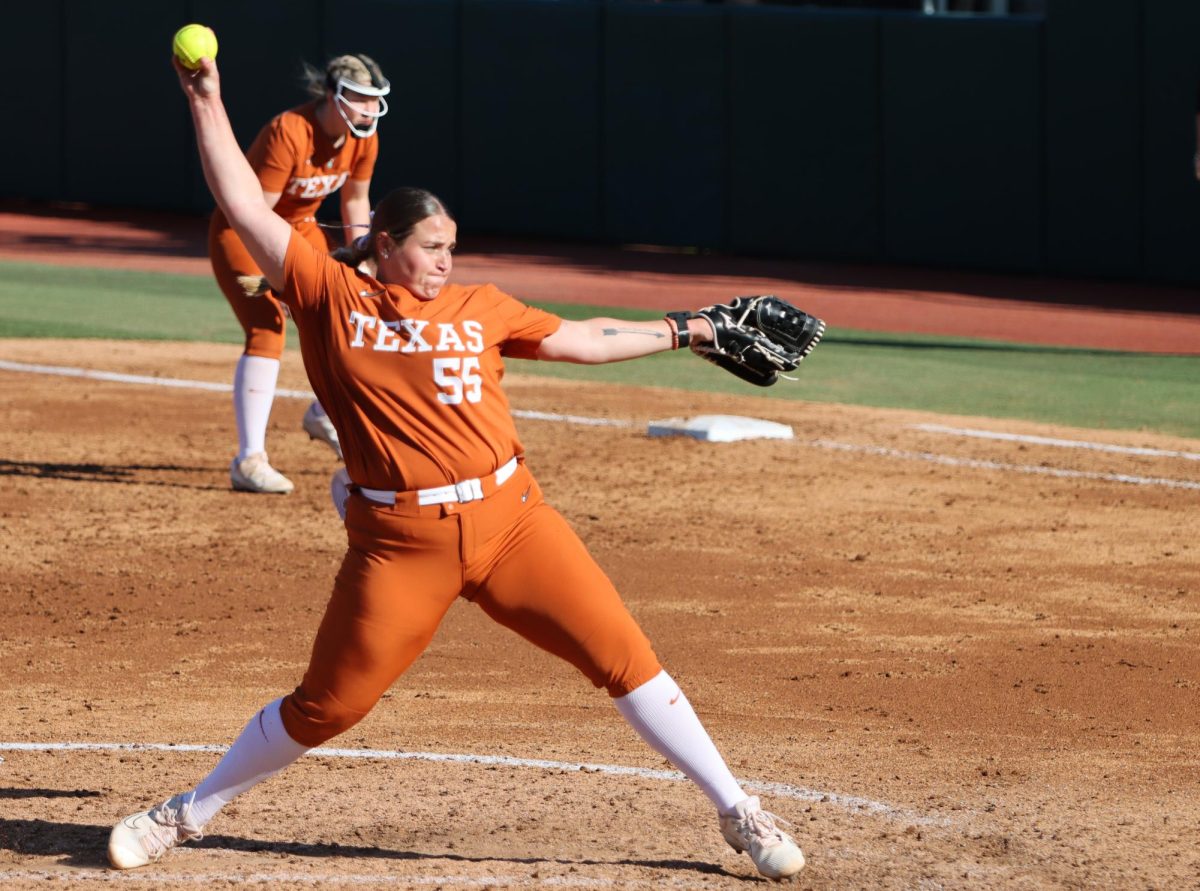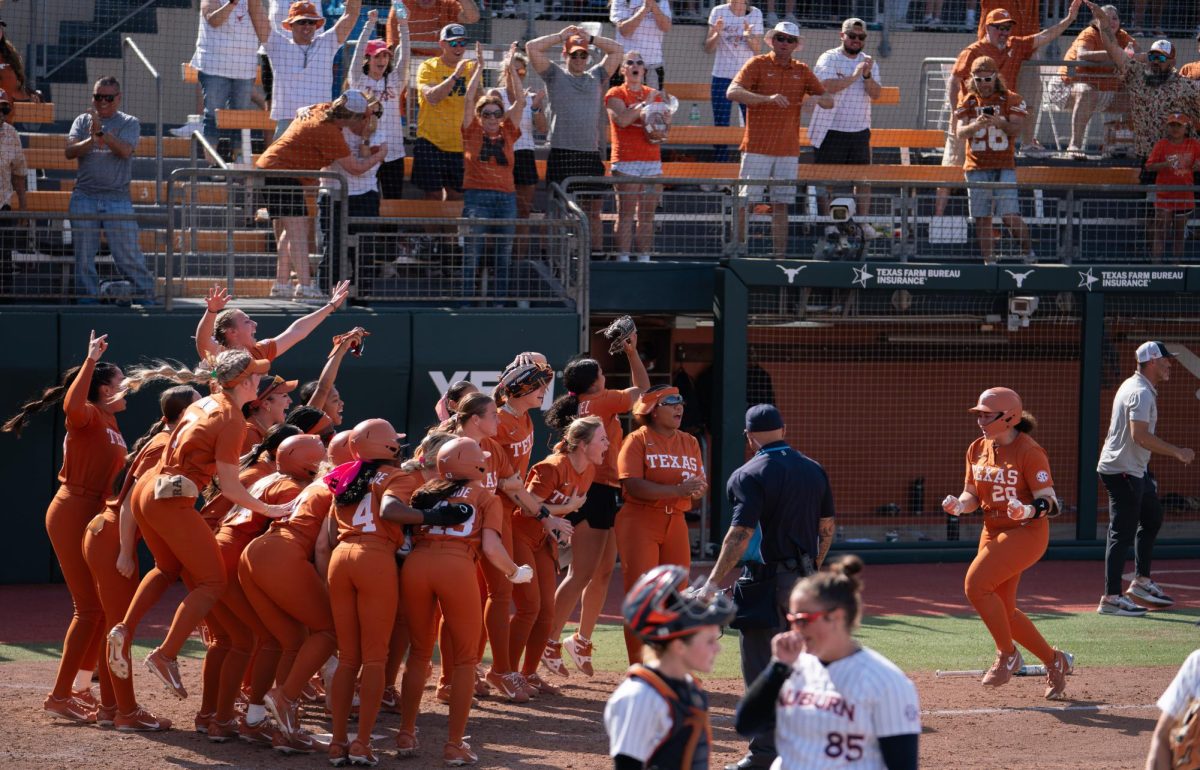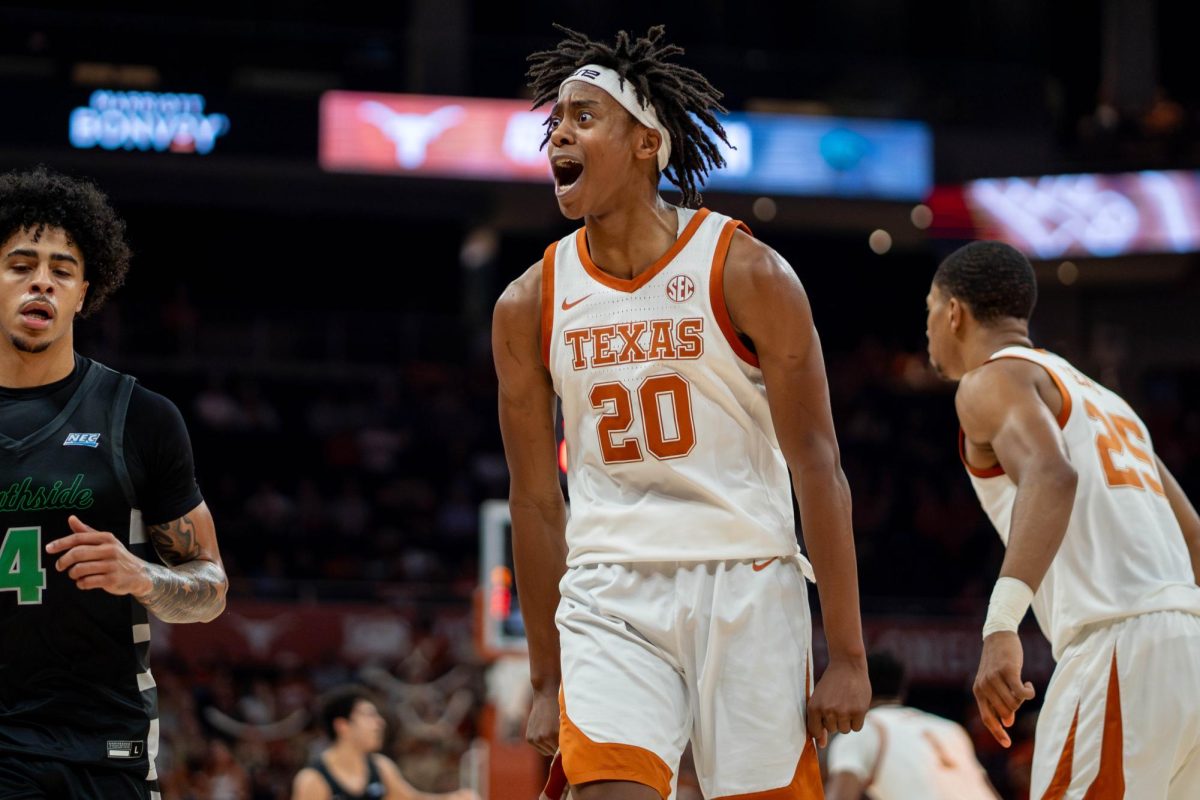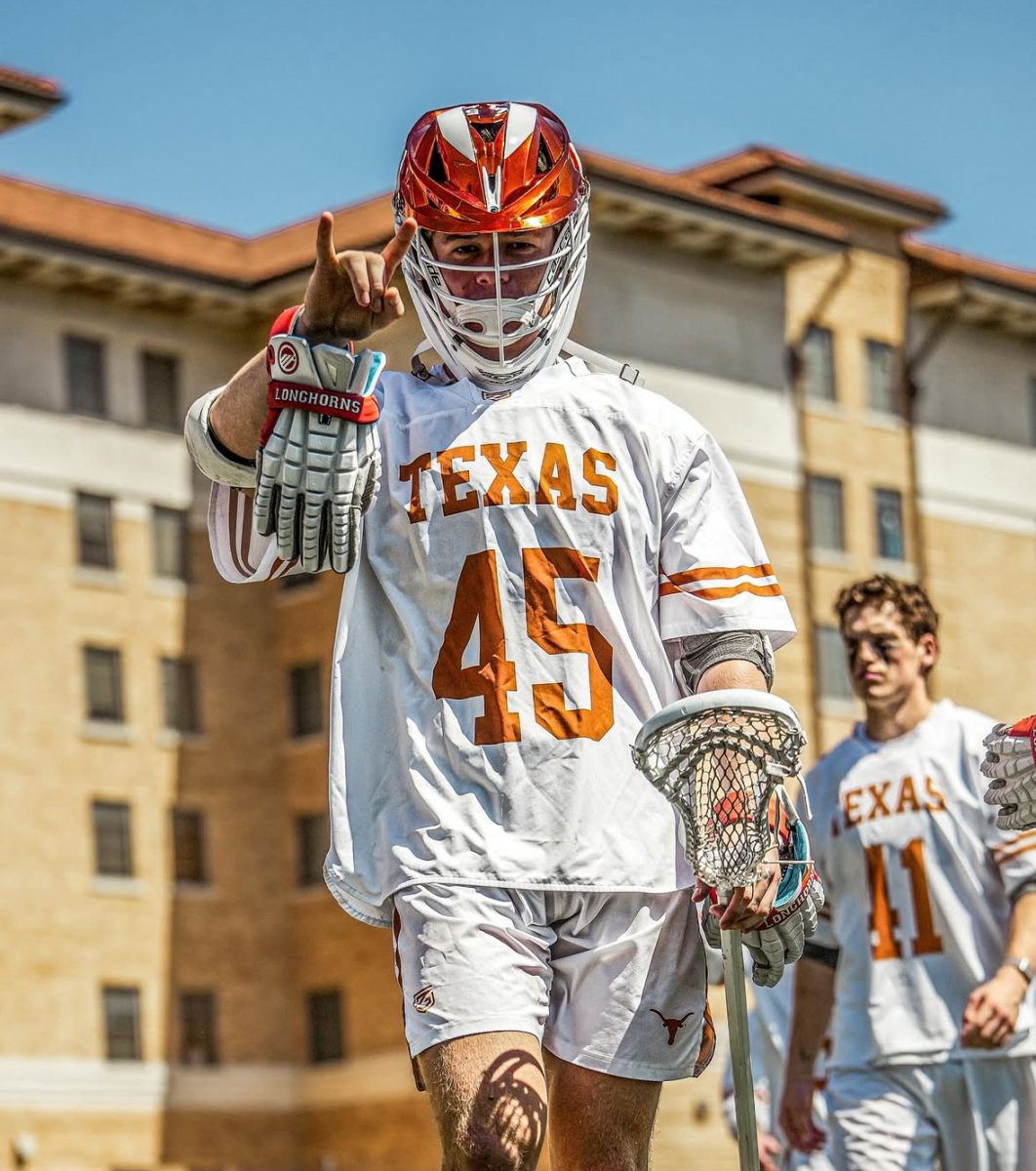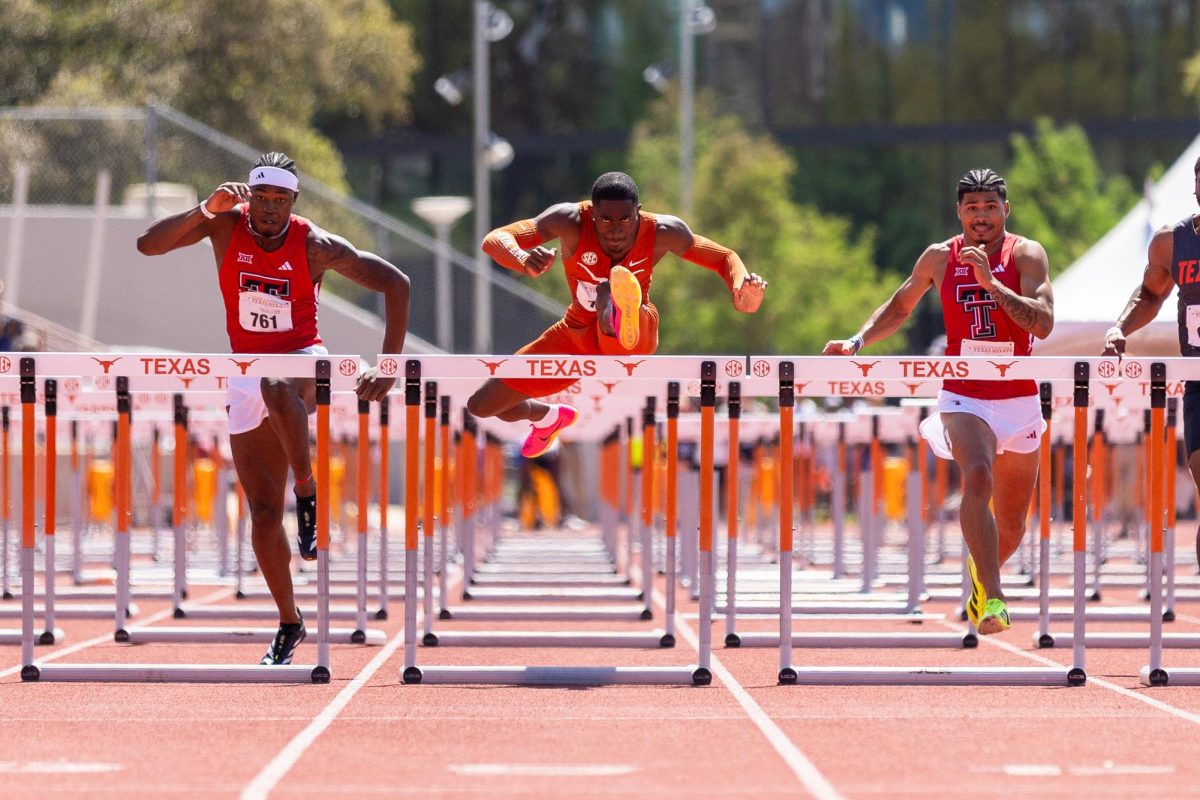The tight ends finally had something positive to celebrate.
As soon as D.J. Grant crossed the goal line for a 45-yard touchdown reception on Texas’ sixth play of the game against UCLA, all six Longhorn tight ends rushed onto the Rose Bowl field, cheering in unison.
They had plenty of cause for such a dramatic reaction.
For starters, it was the first touchdown by a Texas tight end in five games and only the third catch from the position on the season.
But that play had an even deeper meaning.
It marked Grant’s arrival after three long seasons of watching and waiting on the sidelines and two years of multiple surgeries and grueling rehab for the man who tore his right ACL, PCL and hamstring before he ever suited up on game day.
The loudest cheerleader, though, was senior tight end Blaine Irby. And for good reason.
Irby calls Grant a close friend, but their friendship wasn’t born on the field. It was forged on the training table and in the weight room.
If anyone understands what it took for Grant to return to action, it’s Irby. He was with him every step of the way.
Irby rehabbed alongside Grant for two years after suffering a similar injury during his sophomore year in 2008, when he tore his ACL, LCL and meniscus — not to mention the severe nerve damage that left him with a 5 percent chance of walking normally again.
“Before both of us hurt our knees, D.J. and I probably weren’t even that close,” Irby said. “But I think we’re the closest in the tight end room just because we’ve gone through that experience together, gone through such a hardship together, it really brings us closer.”
While both players have returned this season from their knee injuries, they each realize they wouldn’t be where they’re at without the other.
“Blaine gave me all the confidence I need with him coming back the way he did,” Grant said.
Throughout the rehab process, they ran sprints together, competed for the fastest time in the 40-yard dash, lifted weights and received treatment, day after day, side by side.
“Every day we were working, competing, pushing each other, and I think I wouldn’t be here if it wasn’t for D.J.,” Irby said.
But Grant needed more than just someone to push him physically. After all, the rehab process is equally taxing mentally.
“When I first got hurt, I was a little down,” Grant said. “Blaine came to talk to me and said, ‘You know it’s never over. You still have two years when you come back. You can get it together.’ Having somebody support you like that really brings your hopes back up, and it got my confidence back and helped me get back to where I’m at today.”
There were plenty of opportunities for Grant and Irby to abandon their rehab. Two years, of course, is quite a long time. And rehab is never easy.
Yet they persevered through it all, with the Texas training staff constantly prodding them to get better.
“It was very frustrating, but I knew it would have a greater meaning to me after I was done,” Grant said. “And now I look back at it, I’m glad for all the pushing they did to me. All the hard work they gave me to do. Look at me now. It’s working out for me.”
Instead of giving up, Grant and Irby took advantage of their extra time in the weight room. Although they couldn’t be on the field running routes and catching passes with the rest of the tight ends, they were busy bulking up to improve their blocking.
“During his time away, [Grant] got stronger just like Blaine did,” said tight ends coach Bruce Chambers. “When you get stronger, that brings confidence. You’re very confident in blocking. When a guy gets that confidence and knows he’s strong, he can go in there and make those blocks.”
Yes, they found the silver lining. And things might just finally be going their way.
For now, it looks like the tight ends will have plenty to cheer about.



